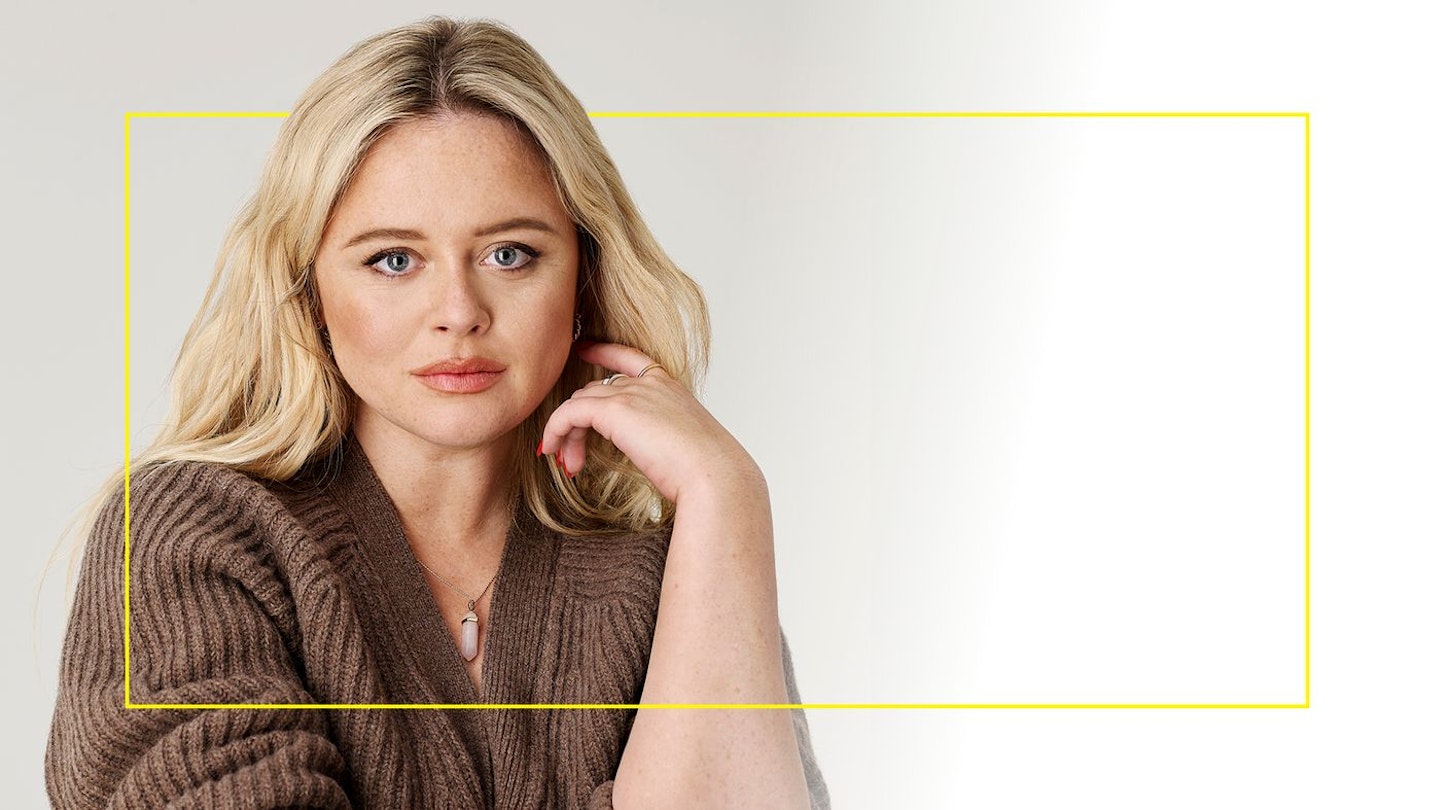Emily Atack met with MPs at Parliament today for a briefing about online anonymity - and asked MPs to support Grazia's campaign to make cyberflashing a crime.
In the meeting, Emily, 31, discussed the scale of abuse and sexually explicit messages she receives online - and the detrimental impact it has on her wellbeing. The actress also detailed how a lot of this abuse is from anonymous accounts, meaning she believes there needs to be a change in the law.
'It was an intense conversation about a really important subject,' Emily says, speaking to Grazia after the meeting. 'It's a subject that I'm so passionate about, and it was so amazing to see people sat in a very important building, taking this seriously. And it warms your heart, knowing that people are concerned about the same things that you are.'
She added: 'It was just such an honour to be a part of that discussion, and to be listened to - and to be respected in that capacity.'
The briefing was chaired by Conservative MP Maria Miller, and was attended by numerous MPs. Maria chairs the All-Party Parliamentary Group (APPG) for UN Women and has been campaigning since 2014 for better recognition in the law of the appalling abuse that women receive online.
In the current draft Online Safety Bill, violence against women and girls is not explicitly named - something Maria and Emily both want to change. MPs have also been campaigning for stronger rules to prevent people sending abuse from anonymous accounts.
In October, Emily joined Grazia’s campaign to make cyberflashing a crime - writing a powerful essay where she described the hundreds of sexually explicit and abusive messages she receives everyday.
But Emily, while she has a huge platform and 1.7million followers on Instagram, is not the only victim of the crime. As part of the campaign, Bumble has commissioned research which found that 48% of those aged 18-24 have received a sexual photo they did not ask for in the last year alone. And 95% of women under the age of 44 believe more needs to be done to stop these unsolicited nude images.
Yet there is currently no legislation regarding cyberflashing – it is not a criminal act.
‘What fascinates me is that if you walk out in the street and someone flashes you, they will probably be arrested,’ Emily wrote, ‘yet when you receive a dick pic you haven’t asked for, let’s face it, an irksome conversation with the police is likely to become a laborious task that will amount to nothing.’
Since writing for us, Emily unfortunately continues to receive the same horrific abuse she wrote about. 'But I think that in order to make a change, you have to go through the storm first,' she tells us today. 'And I think it's going to get worse before it gets better.'
So, after the meeting, does Emily think cyberflashing is going to be made a crime? 'It's hard to think something isn't going to happen,' she says. 'When you're sat there in a room like that, with such important people, it's hard to believe they're going to wake up tomorrow and just crack on with something else. I mean, I'm sure they are - but it's nice to know that it's being considered.'
TO SUPPORT OUR CAMPAIGN TO MAKE CYBERFLASHING ILLEGAL, YOU CAN SIGN OUR PETITION HERE
READ MORE: Meet The Women Fighting To Make Online Spaces Safer
